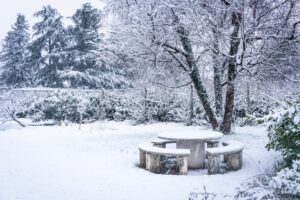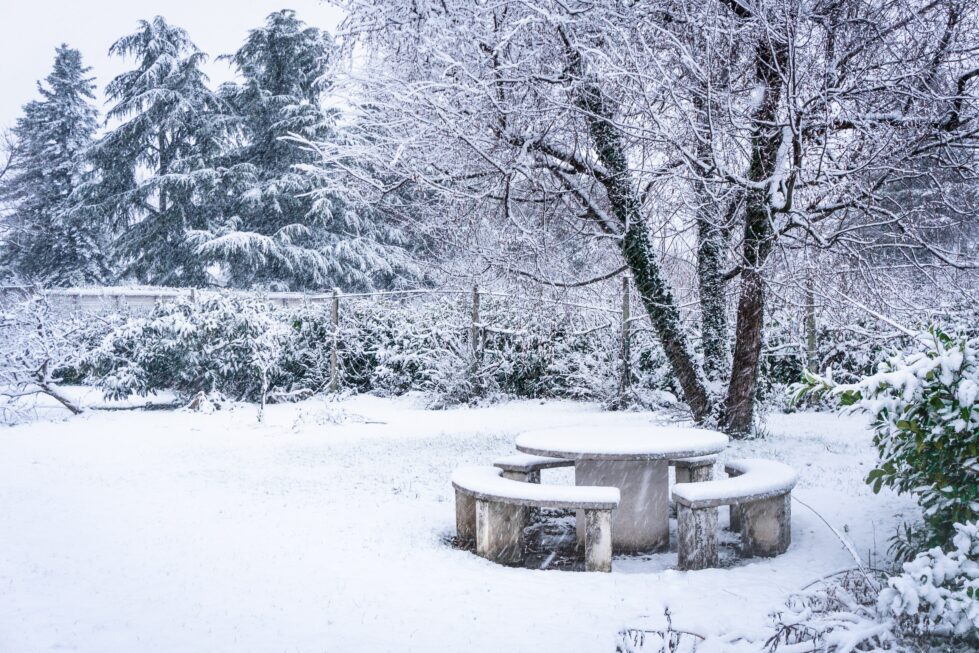

These tips can help prepare gardens before they look like this (Photo by Riccardo Lo Re on Unsplash)
Although there have been a few cold spells in the area over the past few weeks, severe cold weather has not yet arrived in Milford. However, the bitter cold, wind, ice and snow will be here soon enough which is why now is the time to prepare your gardens and outdoor plants for the harsh weather.
“Delaware winter weather is no problem for plants rated for Zone 7 or cooler,” Marge Huntzinger, President of the Milford Garden Club, said. “The major damage we see are in evergreens that do not get sufficient water due to drying winds and frozen soil. Make sure your needle and broadleaf evergreens are well watered throughout the season, ones in containers especially.”
According to Huntzinger, broadleaf evergreens are the most likely to be damaged if not watered properly. Anyone with pots of perennials may be able to keep them alive throughout the winter while deciduous trees and shrubs can survive years in large pots if checked regularly. Huntzinger explained that annuals and tropical plants, like hibiscus, only survive one growing season in Delaware.
“Containers that contain hardy plants should be moved to an unheated garage or shed, if possible,” Huntzinger said. “If not, move them to an area out of the wind and sun. You can surround the pots with leaves or straw to reduce rapid temperature fluctuations. Check them regularly and water as needed.”
Some summer plants will begin to wither when evening temperatures drop below 50 degrees while others will remain beautiful as long as the temperature does not drop below 40 degrees. Once there is a freeze, however, almost all summer plants will die.
“Before frost, you can bring tender or tropical plants into the house and take some cuttings off the plants while they are healthy to try to grow a clone plant,” Huntzinger said. “Propagation is a whole course in itself!”
For those with vegetable gardens, Huntzinger explained that they should be cleaned and rotated throughout the year to control disease and pests. However, it is no longer recommended that gardens be cleaned in the fall unless there is a disease present. In that case, but the plants that are diseased, disinfect the tools and throw out the plants that were removed, Huntzinger advised.
“Many of our pollinators spend the cold months among the leaves and in the stems of annuals and perennials, so don’t throw out the good guys to have a tidy garden,” Huntzinger said. “Save that project until next spring when the garden starts to green up and you’ll be rewarded with more good insects. If you need some exercise and want to help the garden, you may want to consider a top dressing of compost and a watering, especially on the evergreens.
Share this Post



